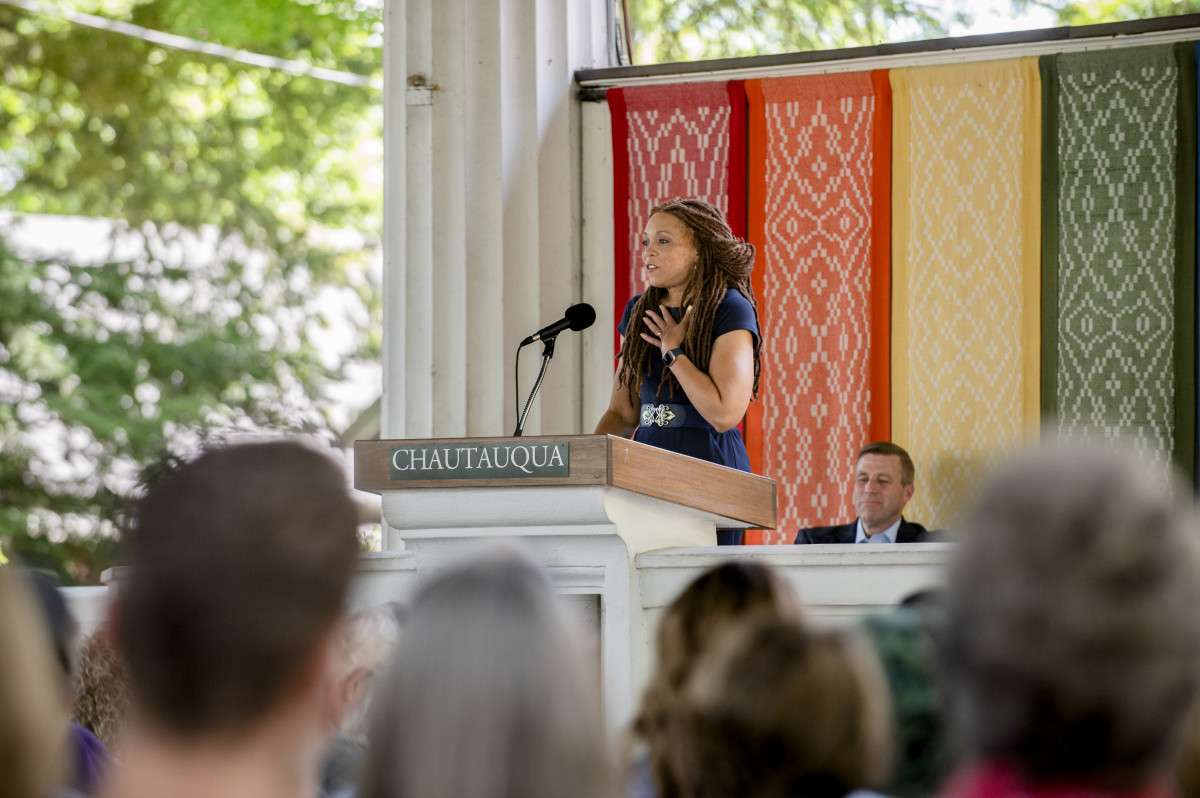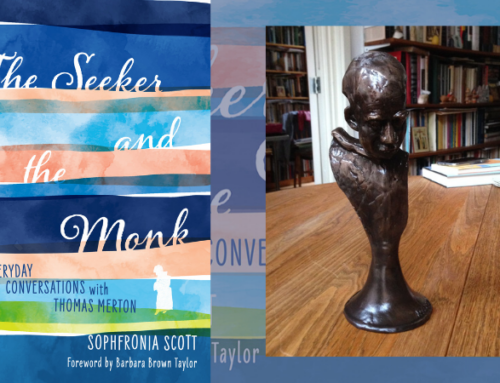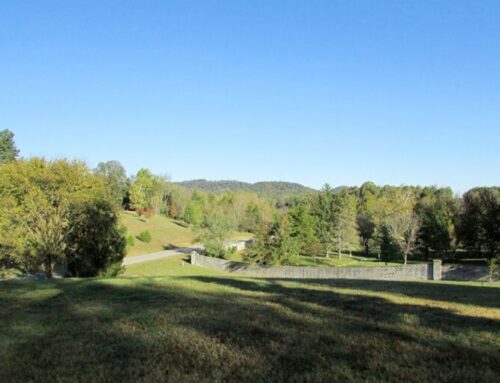From The Chautauquan Daily, July 8, 2022
The divine speaks through the rhythms and cycles of the natural world, but the message may be lost upon the forest floor. Not all humans are receptive to the messages being portrayed through the whirling winds, the humming birds or bending vines.
Sophfronia Scott, a professor, novelist, essayist and leading contemplative thinker, shared her lecture, “In the Water and the Air: Embracing the Divine Through Nature,” with the Chautauquan audience Thursday in the Hall of Philosophy.
Her most recent book, The Seeker and the Monk: Everyday Conversations with Thomas Merton, aligned with Week Two’s theme of “The Wild: Reconnecting with the Natural World.”
Scott first started her career as an award-winning magazine journalist for Time. Some of the books she has written or contributed to include Common Prayer, Love’s Long Line, This Child of Faith: Raising a Spiritual Child in a Secular World, Unforgivable Love and All I Need to Get By.
Beginning with a reflection of her roots in Lorain, Ohio, Scott shared a description of the front lawn of her childhood home. It may have been small, but in her earliest memories, Scott said it felt like a grand meadow.
“I have six siblings, but somehow I managed to spend a good deal of time alone, often outdoors, seeking solitude and sanctuary from a small and noisy house,” Scott said.
She would often gaze upon the green of the yard and the blue of the sky, but one day, Scott saw rays of sunlight seeping from the sky.
“I viewed (the rays) with wonder. No, not only that, I felt it as a living presence. Like one of those rays could lay upon me like a hand on my shoulder. And I don’t know why, but I had this sense that it would follow me everywhere,” Scott said. “Then the cloud shifted. And I couldn’t find it again. But I kept looking for it. I told my mother about it. And I remember this specificity with which I did so, as though I made a new friend.”
This ray of sun, in Scott’s words, was “the seed from which my faith sprouted.” It helped her understand that the divine was all around her.
The title of Scott’s lecture included the word “divine.” She explained that she used it not only because it is beautiful, but also to keep the door open for those who feel like the word “God” may be an obstacle.
Scott said she often returns to a state of remembering her senses of the divine as a child. Often, she remembers naturally and without pressure, but sometimes, she needs to remember to move forward in the digital era.
Quoting from Thursday’s morning lecturer Terry Tempest Williams’ book Erosion: Essays of Undoing, Scott read, “Our connection to the world is virtual, not real. … We have moved ourselves from the outdoors to the indoors. Nature is no longer a force, but a source of images for our screensavers. We sit, we stare, we text on our iPhones and type on our keyboards and await an immediate response. Patience is an endangered species. Intimacy is a threatened landscape.”
Scott shared the words of Fr. Richard Rohr, a previous interfaith lecturer at Chautauqua, who said that the separation of nature and human consciousness must be healed through a radical overcoming.
Click here to read the rest of the article at The Chautauquan Daily.



